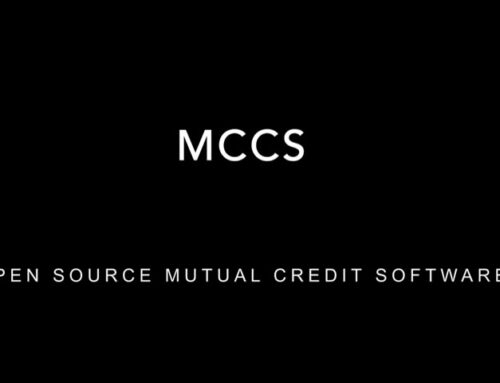If you ask a business owner if they would like to make more money the answer is usually “Yes”, followed swiftly by “but what’s the catch?”
The default, competitive, market has bred a naturally suspicious mindset, which typifies the present economy which has been built on the concepts of competition, scarcity and exclusion.
Overcoming suspicion, and building trust, are the core tasks of a the Open Credit Network, in order to grow our network of forward thinking businesses and to seed a more collaborative economy which works for the benefit of our members.
What is “mutual credit”?
Mutual credit is not a new idea, most people have heard of LETS (Local Exchange Trading Systems or Schemes) in which people exchange goods and services without the need for money but, business to business schemes are not so common.
Mutual credit provides a mechanism for businesses to trade without money, via a credit clearing system. A credit clearing system is an arrangement in which a group of businesses, each of whom is both a buyer and a seller, agree to allocate each other sufficient credit to facilitate their transactions within the network.
Business to business (B2B) mutual credit networks offer significant benefits to their members.
Take the WIR for example, which has been increasing the turnover of Swiss businesses since 1934. Or the Sardex network in Sardinia, which facilitated over €41 million worth of trades for its members in 2017. These, and examples in other countries, prove that when enough people agree to collaborate it is perfectly possible to conduct business and generate increased profits without the need for conventional ‘money’.
How does mutual credit work?
- Businesses that join the network offer goods and services to other member businesses in exchange for credits, at the same prices they charge in their regular currency.
- Businesses receive an interest free line of credit enabling them to trade with other members of the network without needing cash.
- Each business is listed in a directory of “offers and wants” enabling other members to find the goods and services they need, and to find new customers and suppliers.
- Trades are conducted in credits or a ‘blend’ of traditional (fiat) currency and credits – to ensure businesses are able to cover the costs of raw materials and other necessities which are not available in credits, and cover their tax liabilities (i.e. VAT is still payable on mutual credit trades)
- The buyers credit balance goes down – the sellers balance goes up – the overall balance of the network remains at zero at all times.
What are the benefits of mutual credit?
There are multiple benefits of using mutual credit which, just to clarify, is not an alternative currency (since there is no “currency”) or a tax avoidance scheme. The main benefit is the ability to turn ‘spare capacity’ into additional revenue and profits.
Take Mrs Pie’s restaurant as an example. Mrs Pie has a number of fixed costs: The ingredients, pie chef, the waiters, as well as her rent, rates and utility bills. No matter how many pies she sells she still has to pay these costs. If only 20 of the 30 tables in her restaurant are full the other 10 tables are her spare capacity. They are not generating any income whilst they sit empty without people eating pies – they are dragging down the profit margin of her business.
Now, suppose Mrs Pie joins the Open Credit Network, and agrees to receive credits in exchange for pies at 10 tables, she will encourage customers who may not have cash, but do have credits, to eat in her restaurant. If she fills all the empty tables with credit paying customers she has ‘optimised’ her business by turning her spare capacity into revenue. Now she can spend the credits she received to buy supplies for the restaurant with other businesses in the network, for example she might buy ingredients, drinks, or pay her accountant or hairdresser in credits.
If Mrs Pie’s cash-flow is not looking great she could even buy goods and services from the network before taking a single credit, by using her interest free ‘overdraft’ in the mutual credit system. This is second benefit of the network.
So, thanks to the Open Credit Network, Mrs Pie has optimised her business, she has generated more revenue, which has in turn increased her profit margin. Plus, she’s probably made a few new friends along the way by accepting credits at her restaurant and trading with other network members.
But the benefits don’t stop there. Being part of the Open Credit Network helps grow your customer base via the directory through which you can promote your goods and services to other businesses.
Accepting mutual credit avoids ‘discounting’, which undermines profits.
It also frees up precious liquidity (cash in the bank) for essential purchases. The interest free credit limit can be used to cover running costs or to fuel expansion to help your business grow.
Mutual credit schemes also consistently report increased loyalty, and stronger and more supportive relationships with other members of the network. The reciprocal, collaborative nature of the network changes the fundamental nature of trade. Members are united through the network, rather than divided and extorted by the conventional banking system which has monopolised the ‘creation of money’ for too long.
The Open Credit Network is being developed as a not-for-profit co-operative and is being championed by the Finance Innovation Lab. If your business is interested in getting involved please express interest and we will invite you to join as a Member when we have found you potential customers.





